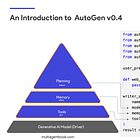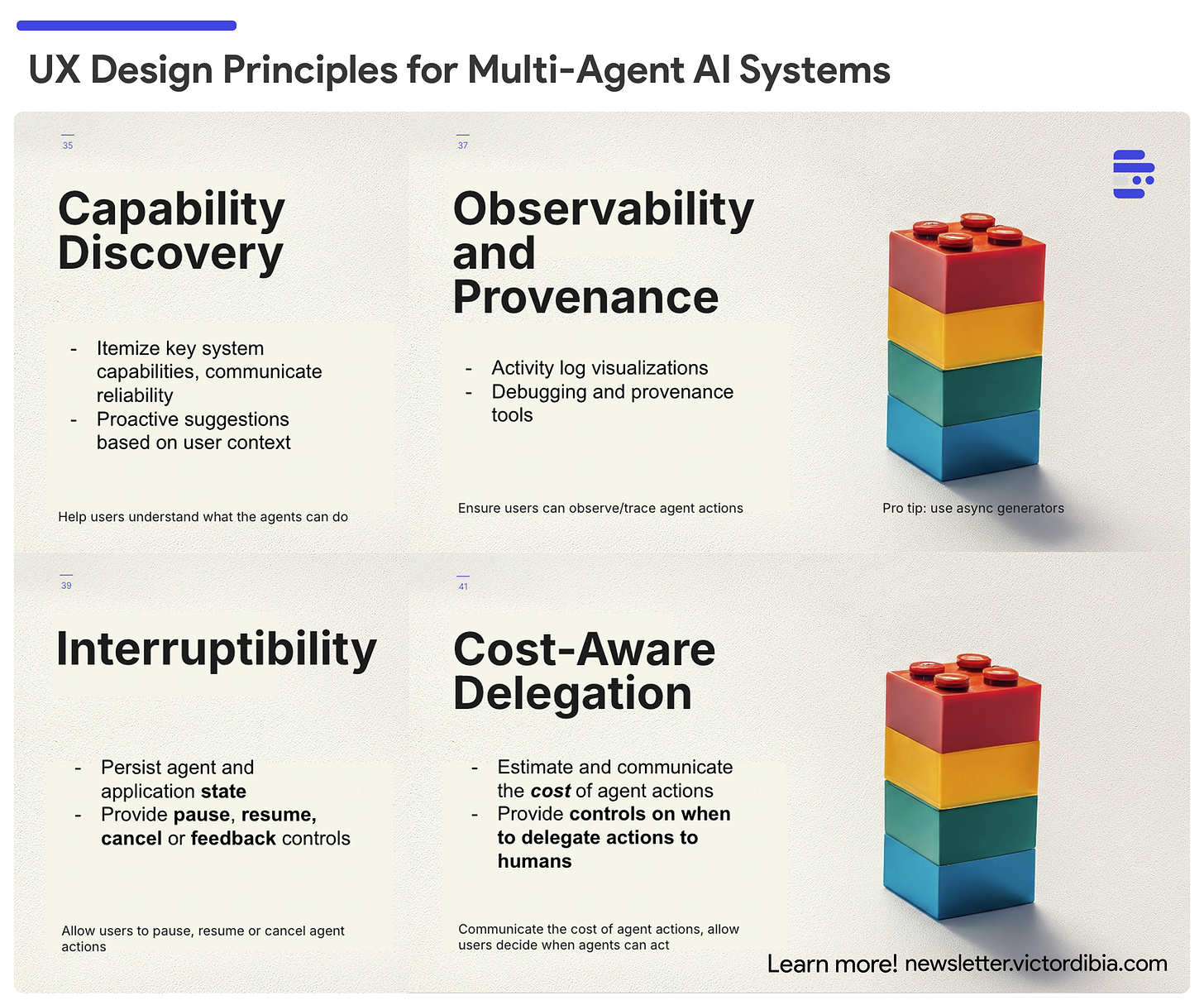... Why I write about AI ...
#43 | 6000 subscribers, and my reflections on why I write about AI .. and why you should too!
The Designing with AI newsletter just hit 6,000 subscribers. Thank you!
I spend an awful lot of my free time writing about AI - late nights, weekends, whenever my 6-year-old is asleep (his time is precious!). For the past decade, I've built interactive prototypes and written mostly for a technical audience - software engineers and researchers on my personal website and now on Substack. As examples - I built the first interactive demo showing how to train deep neural networks for anomaly detection in the browser using TensorFlow.js, how to train a Generative Adversarial Network from Scratch for African Mask Art generation (GANs, TPUs) and interactive demos showing how Convolutional Neural Networks work for semantic image search etc. The goal here was mainly to help technical audiences learn new technical things.
But in the last ~3 years, something has changed. Capable, complex AI has become commoditized. ChatGPT, Sora, Veo - these tools have brought topics I once explained to engineers and researchers into the mainstream. Suddenly, non-technical users are interacting with AI daily, people with no background in software engineering are now “vibe coding” apps, and teams are scrambling to integrate this technology into everyday tools. Furthermore, AI systems are becoming more agentic - i.e., they can perform actions (e.g., send emails, reserve tickets, write code) autonomously on behalf of a user.
Advanced AI (by some standards) itself is becoming normal technology.
From my vantage point (as someone who works in the AI field), I can't help but see many side effects to this rapid shift. Specifically, I think that a rapid shift unaccompanied by adequate preparation could be problematic. One analogy that comes to mind is giving a 16-year-old a Ferrari LaFerrari a month after he gets his driver's license. Now the Ferrari itself (an incredibly fast and sophisticated car) is not problematic. However, the teenager's lack of experience, judgment, and training/education inherently makes the situation problematic.
Similarly, the proliferation of AI should be accompanied by a proliferation of AI literacy and education to enable effective and responsible use. Deep down, this is why I write.
Why I Write About AI
If I could bucket the reasons I write, I’d organize them into the following 4 areas.
1. AI Literacy
I think that like internet or digital literacy, AI literacy - how to successfully and efficiently use AI for any and all tasks - will be critical. If we agree that AI will drive an increasing slice of decisions made by the general population, then it is important that the general population understand how AI works. It can be as simple as highlighting the limitations of generative AI models today (hallucinations etc) to under understanding how to effectively use AI (as a tool) for specific tasks.
2. Developers Need to Understand How to Build with AI
All engineers should understand how to build with AI and integrate AI into solutions. AI enabled software engineering is now a thing. It is changing how software is build and consequently the expectations of employers.
IMO, developers that don’t use AI for software engineering tasks are likely behind.
Recently, the CEO of Shopify declared that employees must reflexively use AI. A quote is below:
Before asking for more Headcount and resources, teams must demonstrate why they cannot get what they want done using AI. What would this area look like if autonomous AI agents were already part of the team? This question can lead to really fun discussions and projects.
It behooves all engineers to at least understand how AI and AI agents work.
3. AI Can Have Adverse (and Unintended) Side Effects
AI can have adverse side effects. Some of these are subtle (e.g., AI fatigue) while others could lead to potentially catastrophic outcomes (AI that becomes severely misaligned). Understanding these risks is essential for responsible development and deployment.
A while ago, I reflected on an incident in which OpenAI released a model that was sycophantic and how naive revenue/product signal optimization directly leads to such adverse (mostly unintended) outcomes.
4. The UX of Agentic AI is Unknown
The core ways in which humans interface with increasingly autonomous or agentic AI is unknown. If AI driven software can reason through novel problems, act on human behalf (agents), how do we build interfaces that keep the human in the loop, provide visibility into agent action, facilitate approvals at the right level of granularity, how do we build experiences that do not diminish critical thinking? etc. We will only discover this unknown territory by building, experimenting and writing.
Bonus: Writing for Myself
Beyond the broader external goals I've outlined, I also write for deeply personal reasons. Writing forces me to clarify my thinking - transforming scattered thoughts into coherent arguments that are far more refined than anything I could produce in casual conversation. It also creates a valuable resource I can draw from repeatedly, whether I'm speaking at conferences, advising teams, or simply discussing these topics with colleagues.
.. You Should Write Too!
With all these points listed, I sincerely believe there just cannot be "enough" writing about AI. Sometimes, it can be hard to reason about the mechanics of social network theory - how multiple individuals can write about the same thing but hit completely different audiences. How you just might be the only source of that type of information within your network, might have a unique perspective and be right person to share.
You should write too.
All of this is to say - you should write too!
I have a long list of folks who actively write about the AI space that I admire and find their work useful - Nathan Lambert (interconnects) , Charlie Guo (artificial ignorance), Miles Brundage , Grigory Sapunov (Gonzo ML), Swyx Latent.Space and a few others. Definitely follow their work!
I keep coming back to this article by Miles Brundage on important things to work on. Miles advocates for more work on AI literacy, demonstrations that clearly illustrate the increasingly complex (as well as dangerous) capabilities of AI, tools to inspect and make sense of agentic AI, the need for policy, amongst other topics. And I agree with all these points.
And to the 6000 of you who have found my writing worth following, thank you and cheers to co-navigating the AI journey ahead.















https://danafharbaugh.substack.com/p/disco-ball-warfare
How AI helped a lost Veteran find healing and launch a groundbreaking new business.